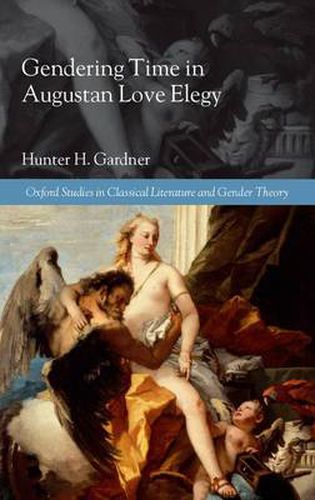Readings Newsletter
Become a Readings Member to make your shopping experience even easier.
Sign in or sign up for free!
You’re not far away from qualifying for FREE standard shipping within Australia
You’ve qualified for FREE standard shipping within Australia
The cart is loading…






Gendering Time in Augustan Love Elegy examines how and why the language of time appears to affect men and women differently in Latin love elegy. Considering the genre’s brief flowering during the Augustan Principate, it aims to situate the elegies of Propertius, Tibullus, and Ovid in their social and political milieu. The volume argues that the imperatives of the new regime placed temporal pressures on the elite male that shaped the amator’s (poet-lover’s) resistance to enter a course of civil service and prompted his withdrawal into the arms of a courtesan, and therefore unmarriageable, beloved.In the second part of the volume Gardner focuses on the divergent temporal experiences of the amator and his beloved courtesan-puella (girl) through the lens of ‘women’s time’ and the chora, as theorized by psycholinguist Julia Kristeva. Kristeva’s model of feminine subjectivity, defined by repetition, cyclicality, and eternity, allows us to understand how the beloved’s marginalization from the realm of historical time proves advantageous to her amator, wishing to defer his entrance into civic life. The antithesis between the properties of ‘women’s time’ and the linear momentum that defines masculine subjectivity, moreover, demonstrates how ‘women’s time’ ultimately thwarts the amator’s often promised generic evolution.
$9.00 standard shipping within Australia
FREE standard shipping within Australia for orders over $100.00
Express & International shipping calculated at checkout
Gendering Time in Augustan Love Elegy examines how and why the language of time appears to affect men and women differently in Latin love elegy. Considering the genre’s brief flowering during the Augustan Principate, it aims to situate the elegies of Propertius, Tibullus, and Ovid in their social and political milieu. The volume argues that the imperatives of the new regime placed temporal pressures on the elite male that shaped the amator’s (poet-lover’s) resistance to enter a course of civil service and prompted his withdrawal into the arms of a courtesan, and therefore unmarriageable, beloved.In the second part of the volume Gardner focuses on the divergent temporal experiences of the amator and his beloved courtesan-puella (girl) through the lens of ‘women’s time’ and the chora, as theorized by psycholinguist Julia Kristeva. Kristeva’s model of feminine subjectivity, defined by repetition, cyclicality, and eternity, allows us to understand how the beloved’s marginalization from the realm of historical time proves advantageous to her amator, wishing to defer his entrance into civic life. The antithesis between the properties of ‘women’s time’ and the linear momentum that defines masculine subjectivity, moreover, demonstrates how ‘women’s time’ ultimately thwarts the amator’s often promised generic evolution.